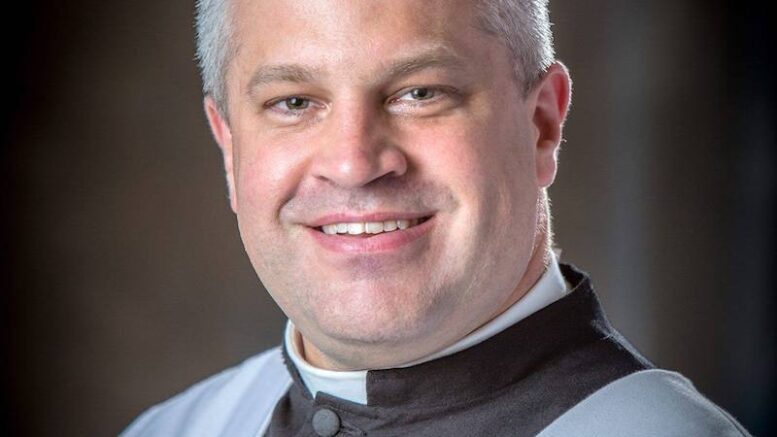On April 2, 2023, many Christian denominations in the west will celebrate Palm Sunday, the triumphant entrance of Christ into Jerusalem. (Mt 21:1-11) Shouts of “Hosanna to the son of David! Blessed is he who comes in the name of the Lord. Hosanna in the highest” rings out from the crowds, who lay their cloaks on the road or cut branches from the trees to mark the path of his royal journey. To make this mystery present, the use of palm or olive branches is common. Thus we celebrate “Palm Sunday” each year.
This begins the last week before Easter, or “Holy Week.” The crowds in Jerusalem shouting “Hosanna” on Sunday will shout, “Crucify him” on Friday. Thus are all those ever seeking public acclaim taught of the fickleness of the human heart.
I grew up Catholic, and early on the word “Passion” in my vocabulary was simply associated with the actions of Christ during this time. It was only later that I understood its general meaning of “suffering.” Thus we get the word “compassion” – literally, “to suffer with” someone.
These moving moments have long stirred up the hearts of Christians, who longed to “suffer with” their Lord. St. Paul perhaps gives the earliest voice to these sentiments when he wrote, “In my flesh I am filling up what is lacking in the afflictions of Christ.” (Col 1:24) The liturgies and devotions of churches during this time speak to this.
Each of the four Gospels has a “Passion” narrative that finds its place in this season. Palm Sunday is unique in the modern Catholic liturgy for having two Gospel readings: the entrance into Jerusalem (followed by a procession with the palms), and then the passion narrative from Matthew (as this year), Mark, or Luke (in a three-year cycle). The Passion of John is always reserved for Good Friday. As with any retelling based on different eyewitness accounts, they differ in the particular details on which they focus.
In these liturgical retellings, it is most common for the speaking parts to be divided. The voice of the crowd is assigned to the congregation. To lend their own voices to the cry “Crucify him” can help even the most obstinate persons realize the consequence of sin and lead them down the path of repentance and conversion. In more solemn presentations, the entire passion might even be sung.
Attempts have been made to integrate the various accounts of the Passion into a single narrative. In the Byzantine liturgy of some eastern churches, the Good Friday Matins of the 12 Gospels is one approach: splitting the narratives into 12 smaller pieces, removing duplication, so that they can be combined into one service. This service is anticipated on the evening of Thursday. (It should be noted that some eastern churches did not observe the Gregorian reforms to the Julian calendar, and thus their Easter dates no longer reliably correspond to those in the west.)
Another devotional practice is called “The Stations of the Cross.” Once of varying length, common custom now numbers them 14. Pilgrims to Jerusalem might walk the same path that Christ did, carrying the cross from the site of the Praetorium to Golgotha. Those who can’t get to Jerusalem can take a shorter walk through the stations that adorn some churches. Devotional booklets might be used at home. Such scenes might also come alive in a sort of sacred theater.
A group of local youth will enact a “living stations” on Good Friday at 7:30 p.m. at St. Margaret Mary Church in Apalachin, as they have for several decades.
As one approaches death, the words we speak can speak for a lifetime. The gospels relate seven last “words” that our Lord spoke from the Cross. While shorter in principle than any passion narrative, the focus on Christ’s own words can be a powerful opportunity to enter more profoundly into that event. I will be joining a group of local clergy of several Christian denominations to preach on these words in an ecumenical service planned for Good Friday, April 7, at 7 p.m. at the Owego United Methodist Church, located at 261 Main St. in Owego. A free-will offering will be contributed to support the good work of Tioga County Rural Ministry.
Through these events, or their own devotions, it is my prayerful hope that Christians of all sorts will approach Easter with a renewed gratitude for all the many blessings they have received from God.



Be the first to comment on "A Pastor’s Thoughts – On Holy Week"